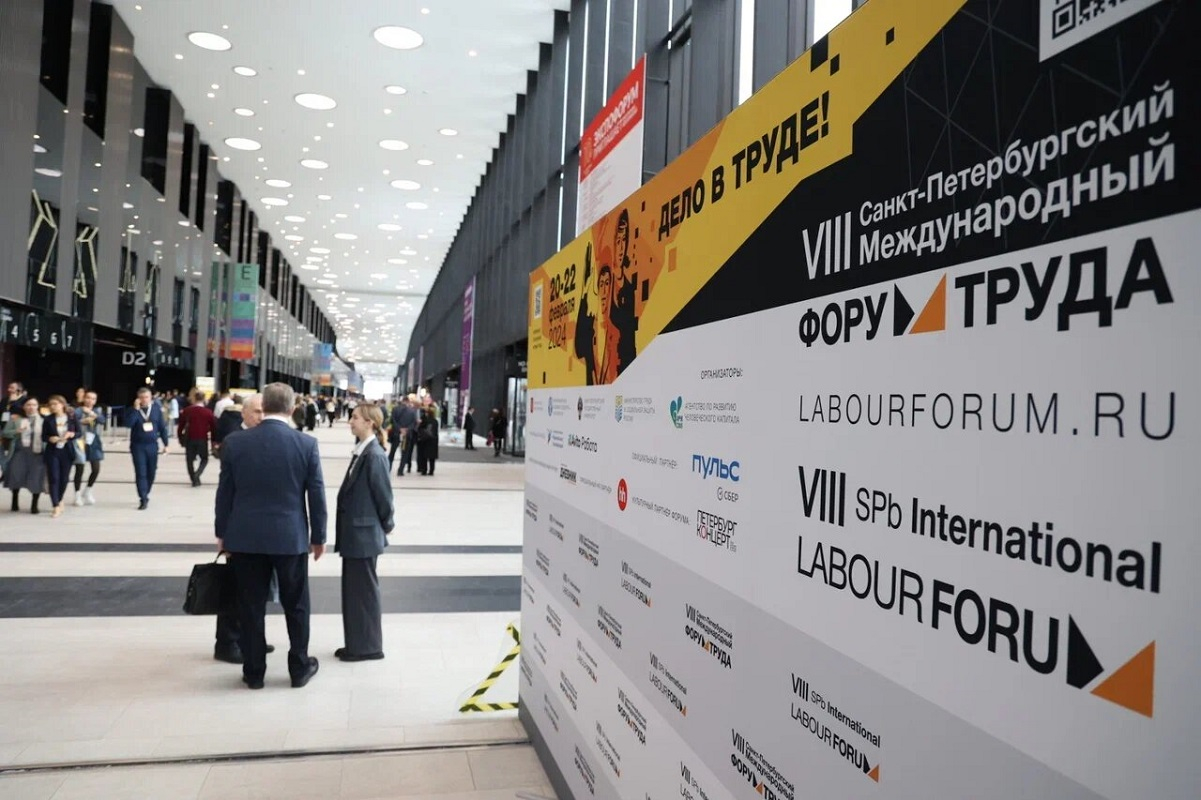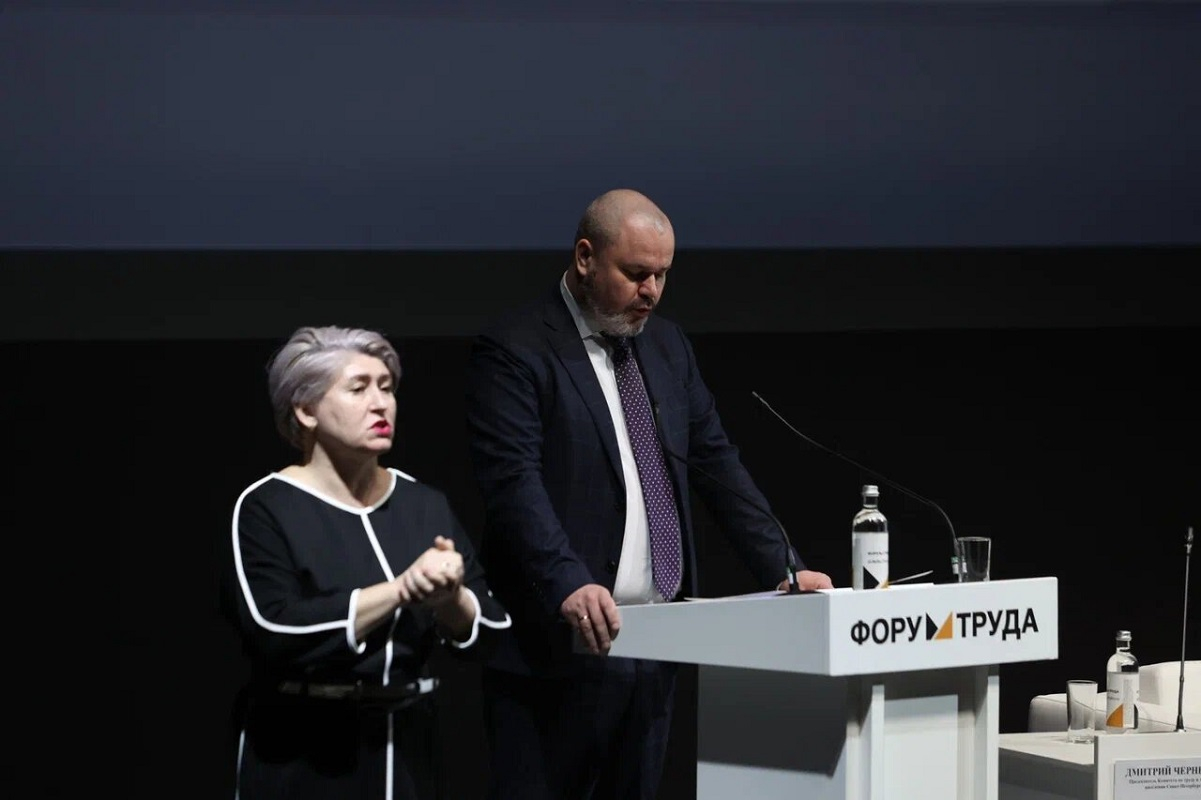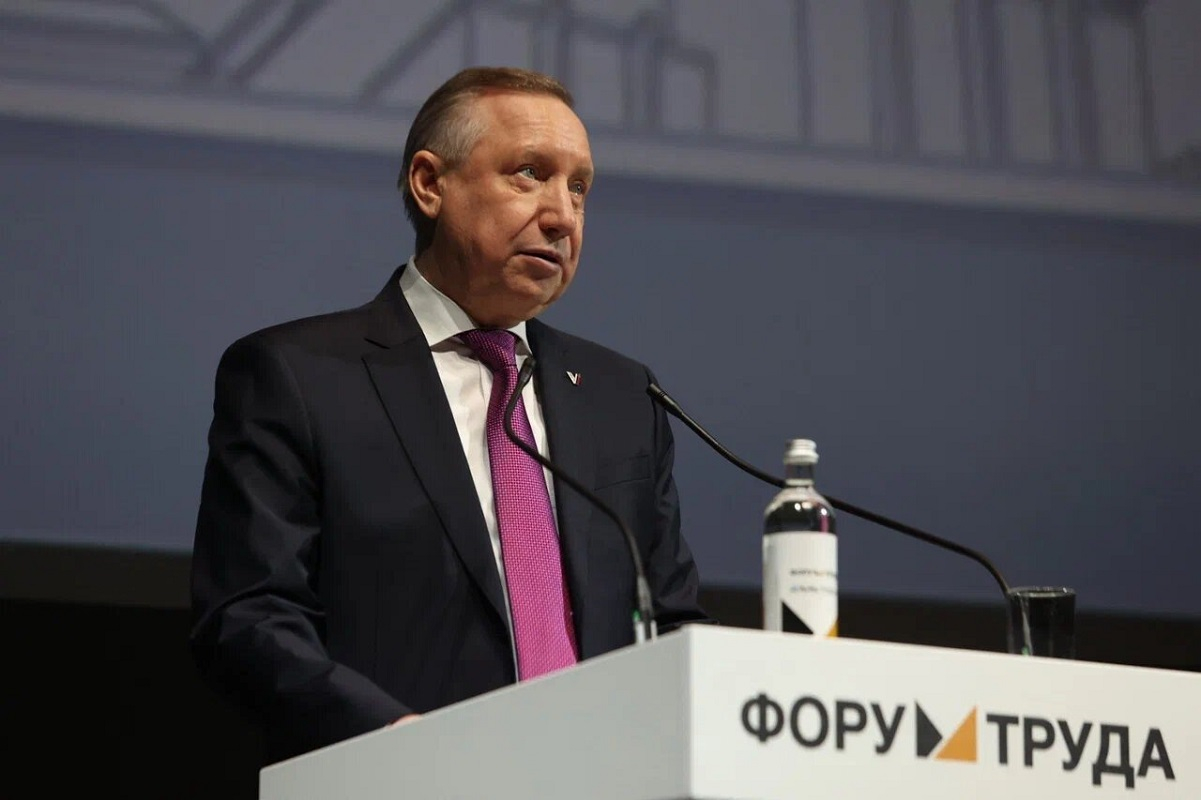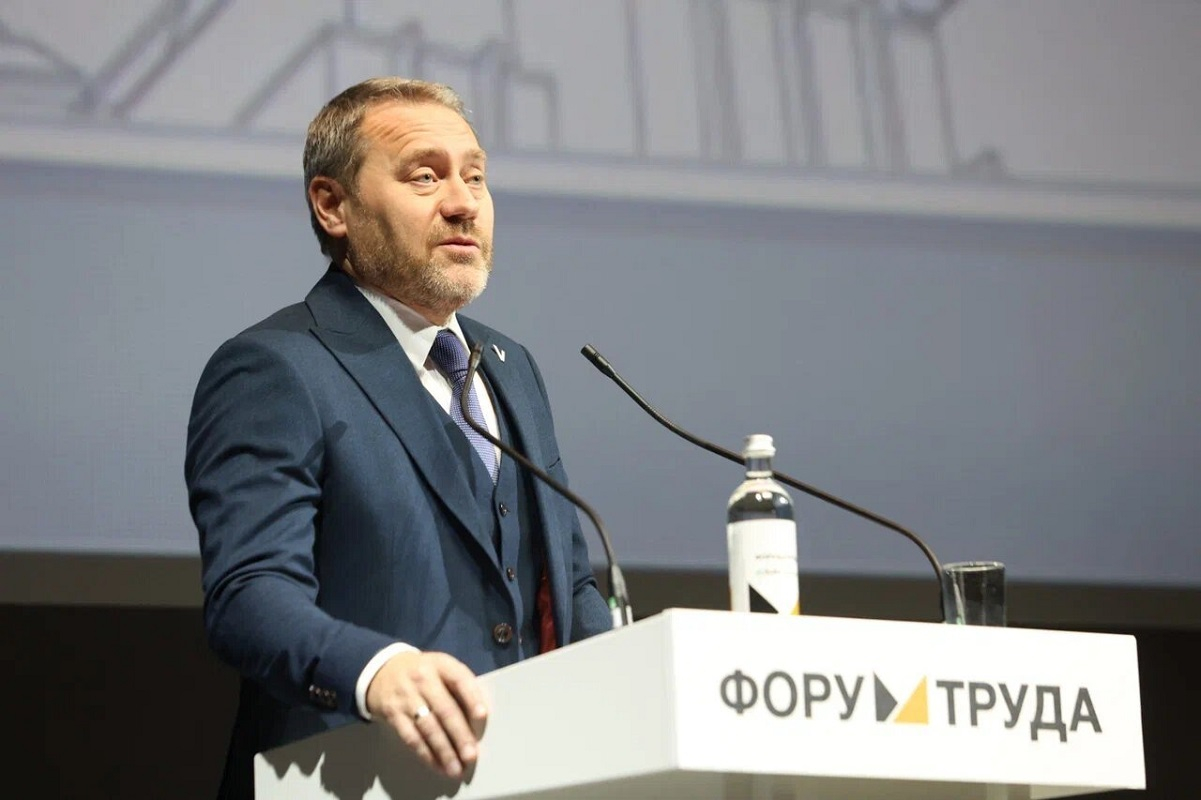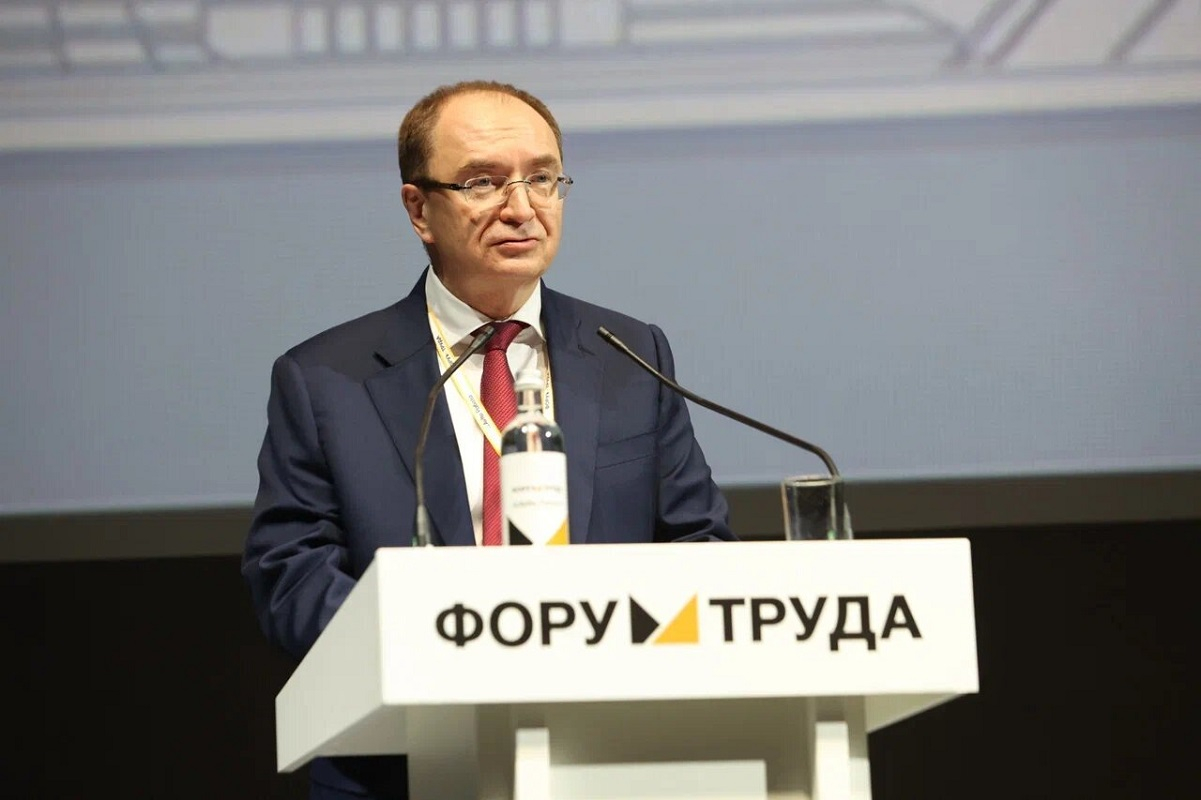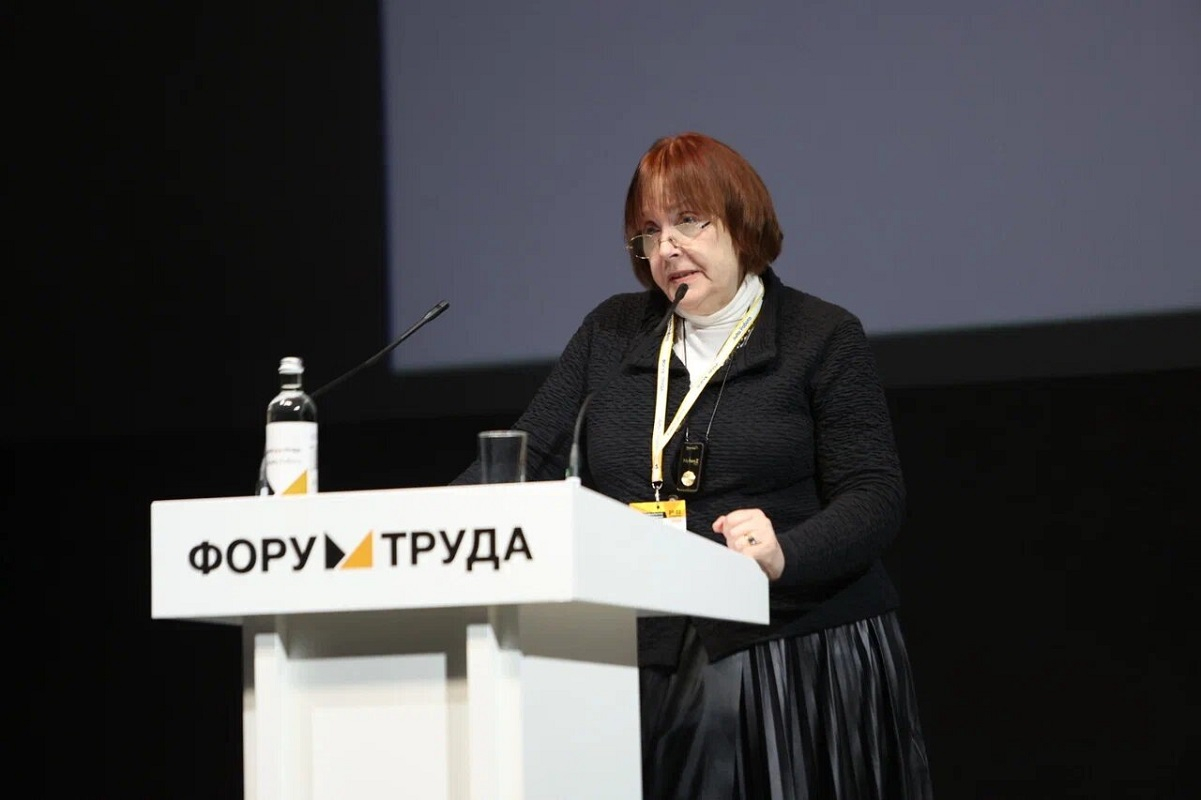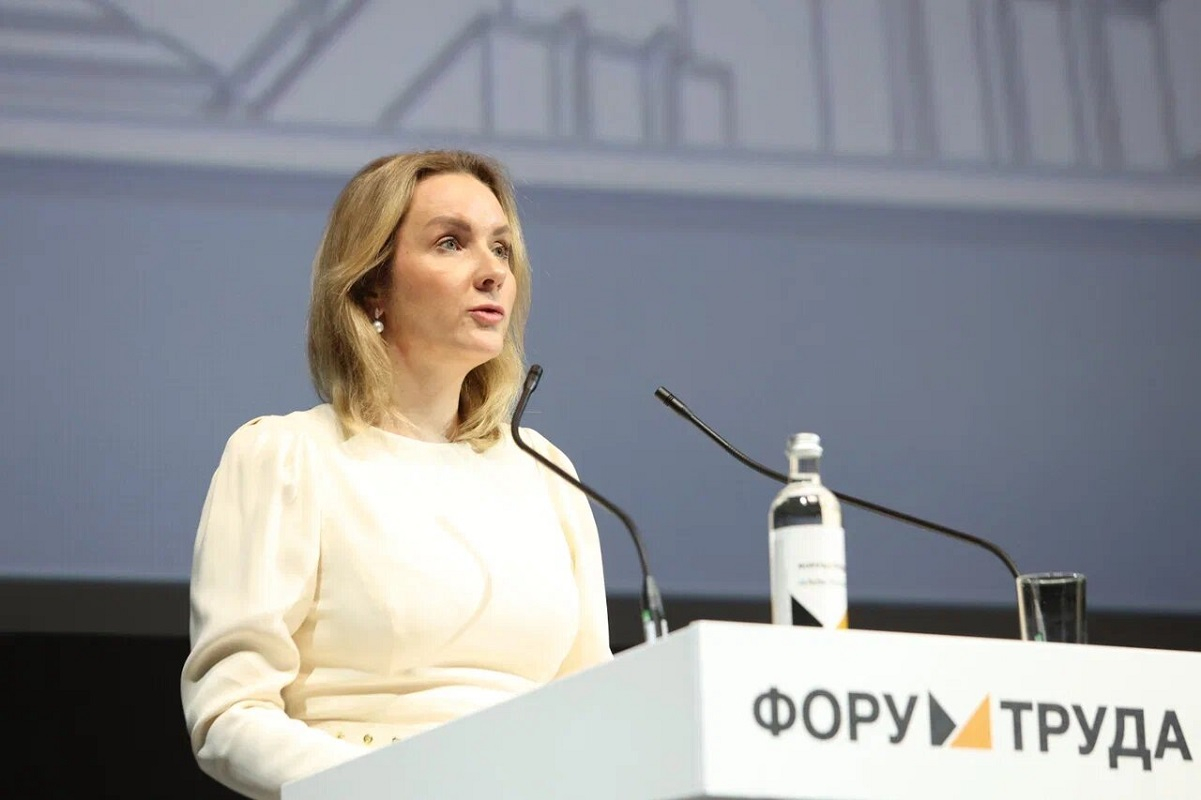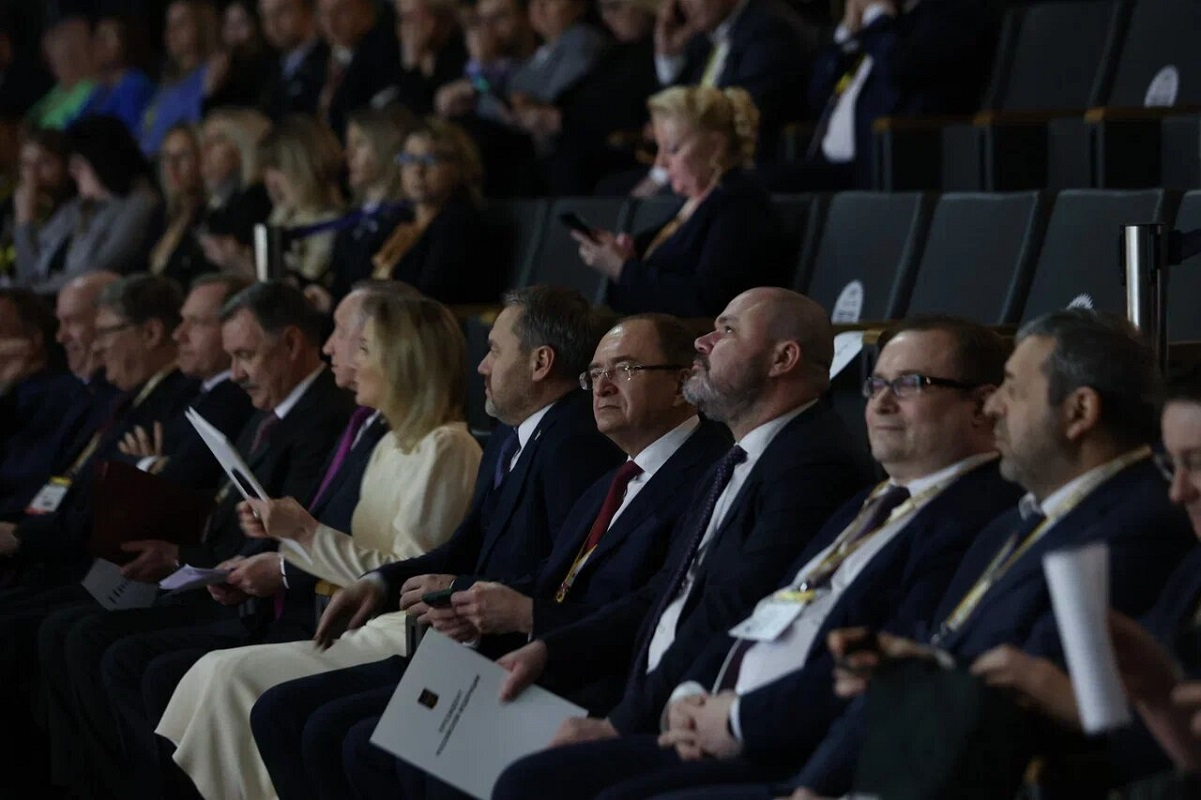The main plenary meeting at the Labour Forum
The plenary session of the 8th St Petersburg International Labour Forum has been held at the EXPOFORUM Convention and Exhibition Centre. It was co-organised by St Petersburg University, the Government of St Petersburg, the Interparliamentary Assembly of Member Nations of the Commonwealth of Independent States, and the Ministry of Labour and Social Protection of the Russian Federation. The event focused on the issues relating to Russia’s human resources and the search for technological solutions for socio-economic development of the country.
In the welcoming speech of Russia’s President Vladimir Putin to the forum participants, read by Deputy Plenipotentiary Representative of the President of the Russian Federation in the Northwestern Federal District Vadim Leontev, the President of the country emphasised that among the overarching priorities for the development of Russia are improving the quality of labour productivity, qualitative modernisation of the employment service and training of highly qualified specialists. The President of the Russian Federation also noted that in order to ensure sustainable economic growth, it is necessary to improve educational and professional standards, effectively regulate labour migration processes and introduce promising scientific developments into industry.
Bringing together representatives of government bodies, business and expert circles from Russia and the Commonwealth states in the Northern Capital of Russia, the forum is set to discuss a wide range of the current issues related to the development of human capital, harmonisation of labour relations, strengthening human resources, including the enterprises of the defence industrial complex.
President of the Russian Federation Vladimir Putin
The economic policy of Russia today is being significantly modified. New approaches are being used to ensure the functioning of the labour market, based on respect and genuine equality of countries, investments in human capital and management of its improvement. These issues were also discussed by Alexander Beglov, Governor of St Petersburg and a member of the Board of Trustees of St Petersburg University. The topic of the plenary session reflects the current trends of changes, i.e. the labour market is becoming seriously more complex and is facing a labour shortage, said Alexander Beglov.
"Russia is changing its labour market policy. This is necessary to fulfil the task set by the President, i.e. to ensure technological sovereignty and in future the technological superiority of our country," said Alexander Beglov. "St Petersburg is actively involved in solving these problems. Over the 11 months of last year, wages increased by almost 7%. The average increase in wages in industry, according to experts, exceeded 32%. The minimum wage has increased significantly and has become one of the highest in the country." The growth of the city economy in 2023, as the Governor said, was supported by employment growth. The St Petersburg labour market increased by 12% over the year.
According to Alexander Beglov, the city’s primary task is to prepare personnel to bring Russian industry to a new qualitative level. To achieve these goals, St Petersburg offers career guidance events, fairs and professional skills contests. Educational institutions of secondary and higher education prepare specialists in accordance with the requirements of those enterprises that need competitive personnel. "All national projects that have been initiated by our President are producing appropriate results," the Governor said.
Nikolay Kropachev, Rector of St Petersburg University, Corresponding Member of the Russian Academy of Sciences, reminded that St Petersburg University, Russia’s leading scientific, cultural and educational centre, marks its anniversary in 2024. The University has launched the Mendeleev programme to support the regions, said the Rector. The University actively cooperates with more than 20 regions of the country and is ready to open new joint academic programmes with regional universities in order to attract strong students for the development of Russian regions.
Since 2020, in order to increase the global competitiveness of Russian higher education and fill the personnel shortage in Russian regions, St Petersburg University, as one of the two leading classical universities in Russia, has been implementing the Mendeleev Research and Educational Cluster programme to promote regional development. Among the project initiatives is developing online academic programmes together with educational organisations and enterprises of the constituent entities of the Russian Federation. St Petersburg University is implementing this project to interact with the Ivanovo, Tambov, and Omsk regions to name just a few.
Talking about the importance of human capital in ensuring the technological sovereignty of Russia, Nikolay Kropachev said that St Petersburg University is the absolute leader among not only universities, but also scientific organisations in the country in terms of the number of new grants supported by the Russian Science Foundation. "Nine Nobel laureates studied and worked at the University over the years. Last year, a graduate of St Petersburg University received this prestigious prize for research in the field of chemistry. Two University graduates are Fields Medal winners, i.e. Grigori Perelman and Stanislav Smirnov. Over the past five years, members of the academic staff at St Petersburg University have received the President’s Prize for young scientists more often than others," said the Rector of St Petersburg University.
Nikolay Kropachev also addressed representatives of the regions and federal authorities with a proposal to widely use the expert potential of the University, which is ready to work in the interests of the regions and the whole country, share experience with partners and create a large number of opportunities for professional growth.
To mark the anniversary of St Petersburg University, the Labour Forum has a separate track of the University, i.e. #SPbU300. It includes many events with experts and partners of the University aimed at developing cooperation between business, universities and government bodies. Among the key events was the scientific and practical interdisciplinary conference "Human capital: education, labour, employment in modern society".
According to Elena Chernova, Senior Vice-Rector of St Petersburg University, the concept of human capital is being modernised and expanded following the current agenda, a new employment market is being formed and greater flexibility of the educational environment is expected while maintaining the requirements for the level of knowledge. "Human capital is the main factor in the formation and development of the knowledge economy, which is the main driving force behind innovation processes in our society. Yet the current geopolitical situation has forced us to introduce serious adjustments and reconsider the main trends. It is more important than ever to understand what human resources are available at the moment, how to build new opportunities so that the results of scientific activity are more quickly integrated into production and industry to solve specific problems facing everyone," said Elena Chernova.
The Labour Forum was attended by 1,000 scholars and members of the academic staff of St Petersburg University. Two hundred and fifty of them were speakers at the round tables, seminars, discussions, and acted as moderators at 45 events. Thirty volunteers worked at the Forum sites.
The Senior Vice-Rector of St Petersburg University expressed confidence that in order to build up human capital, it is very important for universities to plan academic programmes taking into account the short-term, medium-term and long-term tasks facing the state and society as a whole. It is therefore important to combine the existing resources of universities, government officials, business and the non-profit sector to respond to emerging challenges.
The plenary session also had reports by Maria Lvova-Belova, Presidential Commissioner for Children’s Rights; Andrey Kutepov, Chairman of the Federation Council Committee of the Federal Assembly of the Russian Federation on Economic Policy; Alexander Belsky, Chairman of the Legislative Assembly of St Petersburg; and Andrey Isaev, Deputy Head of the United Russia faction, Deputy of the State Duma of the Federal Assembly of the Russian Federation to name just a few.


